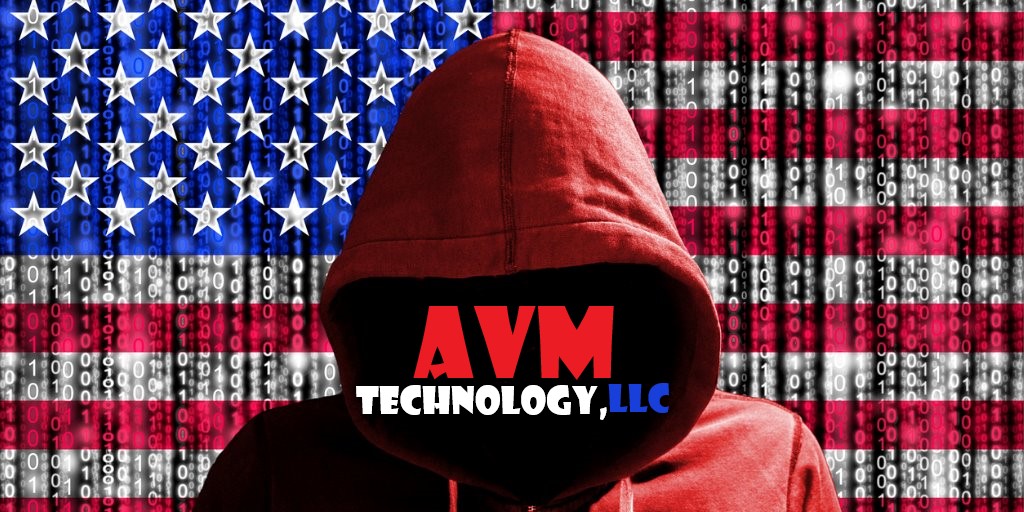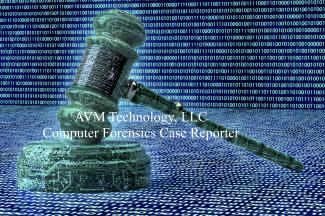Beard Research, Inc. v. Kates
Beard Research, Inc., et al.
v.
Michael J. Kates, et al.
C.A. No. 1316-VCP.
Court of Chancery of Delaware.
Submitted: June 25, 2009.
Decided: October 1, 2009.
DONALD F. PARSONS, JR., Vice Chancellor
Dear Counsel:
In a memorandum opinion dated May 29, 2009 (the "May 29 Opinion"), I found Defendants Kates, ASDI, and ASG jointly and severally liable for Plaintiffs' attorneys' fees and expenses associated with Plaintiffs' Motion for Sanctions for Spoliation of Evidence (the "Motion"), including expert fees and expenses associated with the
Page 2
inspection of the disputed laptop's hard drive.1 On June 12, pursuant to the May 29 Opinion, Plaintiffs' counsel submitted an itemized affidavit (the "Affidavit") seeking attorneys' fees and expenses associated with the Motion totaling $104,340.80. On June 25, Defendant ASDI objected to Plaintiffs' claim for fees and requested that I award Plaintiffs $60,096.55 instead.2 In support of their objection, Defendants first argue that certain fee or expense items included in the Affidavit were for work done outside the scope of the awarded fees and expenses. In addition, Defendants challenge the total amount of fees and expenses sought by Plaintiffs as generally excessive and assert that certain specific fee items are unreasonable.
For the reasons stated below, I grant in part and deny in part Plaintiffs' application and award them a total of $76, 906.80 in attorneys' fees and expenses.
Page 3
I. BACKGROUND3
Plaintiffs repeatedly have requested production of Kates's laptop since 2005, asserting that it might contain files, emails, and other data relevant to the merits of this case. Defendants, meanwhile, consistently failed to produce it. On July 9, 2008, Plaintiffs filed their third motion to compel production of Kates's computer. By then, unbeknownst to Plaintiffs or the Court, Kates already had reformatted the hard drive in the requested computer several times, replaced the drive, and then lost or discarded it. Therefore, throughout the time the third motion to compel was pending, it no longer was likely that the laptop would contain any relevant evidence because Kates had deleted or removed whatever relevant evidence the laptop once held. Neither Plaintiffs nor the Court knew that, however.
The Court heard argument on the third motion to compel and ordered production of the laptop on July 24. Defendant Kates complied with the July 24 Order, but not before he ran a disk cleanup program on the new hard drive and deleted files in flagrant disregard of the discovery rules and a litigant's obligation to preserve potentially relevant evidence.
Once Plaintiffs obtained the laptop, they gave it to eVestigations, Inc. ("EVI"), an information technology company specializing in computer forensics and electronic data
Page 4
discovery, to determine what evidence could be recovered. EVI founder Paul Herrmann reported that several files had been deleted on the evening of July 23, one day before Kates was told he would have to turn the computer over to Plaintiffs' counsel. Several deleted files might have been relevant to the pending litigation, while many others were undoubtedly personally embarrassing to Kates. Plaintiffs' counsel reviewed Herrmann's report on September 3. Herrmann's report was reviewed with Plaintiffs' counsel on September 3.
Based on Herrmann's report, Plaintiffs filed their motion for sanctions for spoliation of evidence on October 3. After briefing and oral argument on that motion, I issued the May 29 Opinion granting Plaintiffs' motion insofar as I held Defendants jointly and severally liable for Plaintiffs' attorneys' fees and expenses associated with the motion for sanctions.
II. ANALYSIS
In the May 29 Opinion, I awarded Plaintiffs "their attorneys' fees and expenses for preparation of the briefing and argument related to [the motion for sanctions], including expenses associated with inspection of the laptop's hard drive."4 Plaintiffs' counsel submitted an affidavit describing the itemized fees and expenses it seeks to recover pursuant to the May 29 Opinion. Defendants have raised certain objections to Plaintiffs' claimed fees and expenses, which I must now address.
Page 5
A. Scope of the Fee Award
Defendants object to the inclusion of certain fee and expense items in Plaintiffs' application, arguing those items pertain to matters outside the scope of the fees and expenses the Court allowed. Specifically, Defendants contend that any fees and expenses associated with work that was done before Plaintiffs began preparing their October 6, 2008 motion for sanctions are not recoverable. Defendants further aver that Plaintiffs could not have known Kates destroyed evidence until after Plaintiffs' counsel reviewed Herrmann's report on September 3. Thus, according to Defendants, I should deny Plaintiffs' application for reimbursement as to any fees or expenses incurred before September 3.
Defendants' objection reflects a misunderstanding of the scope of my previous ruling. The various fee and expense items to which Defendants object pertain directly to Plaintiffs' efforts to gain possession of and inspect Kates's computer. In the May 29 Opinion, I expressly granted Plaintiffs "their attorneys' fees and expenses for preparation of the briefing and argument related to [the motion for sanctions], including expenses associated with inspection of the laptop's hard drive."5 Plaintiffs appear to have incurred the challenged fees and expenses pre-dating September 3, 2008 for the purpose of obtaining and inspecting Kates's hard drive. Thus, I consider those expenditures to be within the scope of my award and reject this aspect of Defendants' objections. As
Page 6
indicated in the May 29 Opinion, Plaintiffs are entitled to such fees and expenses incurred between July and September 2008 because Defendants wasted Plaintiffs' (and the Court's) time and resources by forcing litigation of a third motion to compel, even though the original hard drive in Kates's laptop already had been changed, reformatted, and ultimately lost well before the July 24, 2008 hearing.
I held Defendants Kates, ASDI, and ASG jointly and severally liable for Plaintiffs' fees and expenses associated with the time and effort wasted as a result of Kates's spoliation of evidence and Defendants' failure to prevent or mitigate that situation. Thus, consistent with my earlier ruling, Plaintiffs are entitled to fees and expenses incurred in the preparation and briefing of their motion for sanctions, including expenses associated with obtaining and inspecting Kates's laptop, because those expenditures could have been avoided if Plaintiffs and the Court had known that the evidence of interest was no longer available.
B. Reasonableness of the Claimed Fees
Defendants also object to the total amount of fees Plaintiffs claim and argue that the fees are excessive given the nature of the related dispute. "In determining what fees to award in connection with a discovery sanction, this court has the discretion to examine the circumstances and determine what fees are reasonable."6 As Defendants point out, courts in Delaware look to Rule 1.5(a) of the Delaware Lawyers' Rules of Professional
Page 7
Conduct as a guide to determining whether an attorney's fee is reasonable.7 Although Rule 1.5(a) identifies eight factors that may bear on whether a particular fee is reasonable,8 only the first factor need be considered for purposes of this dispute. That factor is "the time and labor required, the novelty and difficulty of the questions involved, and the skill requisite to perform the legal service properly."9
Plaintiffs claim a total of $83,980.00 in attorneys' fees. This represents the time of four attorneys—from a junior partner with an hourly billing rate of $250 to a senior partner with a rate of $425 per hour. The most junior and senior attorneys, however, collectively spent less than 10 hours on matters subject to the pending fee application. Because the activity for which I awarded fees does not reasonably require more than two attorneys, I have disallowed the time of Messrs. Green and Guerke. I also note that the other two attorneys spent almost 240 hours on the claimed work at a weighted average rate of approximately $340 per hour. Because the motion for sanctions sought extensive relief directed to the merits of this case as a whole, including dismissal or an adverse inference in favor of Plaintiffs, the time spent by attorneys with that level of experience may have been reasonable. Much of the requested relief was denied, however, and my award of attorneys' fees and expenses represents a more narrow sanction directed to the
Page 8
prejudice caused by the spoliation of Kates's hard drive and the procedural missteps related to it. In these circumstances, I consider well-founded Defendants' argument that the claim for attorneys' fees should be reduced by thirty percent based on the nature of the dispute for which fees were awarded.10 To the extent Defendants have asserted other objections to the attorneys' fees requested by Plaintiffs here, I find those objections without merit. Thus, I award a total of $56,546.00 in attorneys' fees based on the time worked by Mr. Hill and Ms. McGonigle.
Defendants similarly seek a thirty percent reduction of the $20,360.80 in expenses incurred by Plaintiffs relating to the motion for sanctions and the inspection of Kates's hard drive. The lion's share of those expenses were for the services of EVI. Defendants have not shown any persuasive basis to question the reasonableness of the claimed expenses. Therefore, I will award Plaintiffs the full amount of the expenses they have requested.
III. CONCLUSION
For the foregoing reasons, Plaintiffs' application for fees and expenses is granted in part and denied in part. In particular, I hold Defendants Kates, ASDI, and ASG jointly
Page 9
and severally liable for Plaintiffs' fees in the amount of $56,546.00 and expenses in the amount of $20,360.80, for a total of $76,906.80.
IT IS SO ORDERED.
---------------
Notes:
1. Beard Research Inc. v. Kates, 2009 WL 1515625 (Del. Ch. May 29, 2009). Defined terms in the May 29 Opinion are used in the same way and with the same designations in this letter opinion.
2. Kates and ASG later adopted ASDI's objections in full. See Resp. of Michael J. Kates and Advanced Synthesis Group, Inc. to Pl.'s Claim for Attys' Fees and Expenses and Cross Claim of ASDI ("Kates's Response"). ASDI also cross-claimed against Kates for the full amount of any sum I may award to Plaintiffs for attorneys' fees and expenses. As Kates's Response noted, it is premature at this time to address the merits of ASDI's purported cross-claim. From a procedural standpoint, however, I will treat ASDI's reference to a cross-claim in its objections to Plaintiffs' application for fees as a request to supplement its answer to add such a cross-claim, and hereby grant that request. Kates may answer in due course any cross-claim that is filed.
3. The May 29 Opinion includes a detailed discussion of the factual and procedural history of this case. In this letter opinion, I have included only those facts most directly relevant to the present dispute over fees and expenses.
4. Beard Research, 2009 WL 1515625, at *13.
5. Id. (emphasis added).
6. Parfi Holding AB v. Mirror Image Internet, Inc., 954 A.2d 911, 943-44 (Del. Ch. 2008).
7. See Mahani v. Edix Media Group, Inc., 935 A.2d 242, 246 (Del. 2007).
8. Del. Lawyers' Rules of Prof'l Conduct R. 1.5(a).
9. Id. R. 1.5(a)(1).
10. I do not hold or mean to imply that the unreimbursed fees were unreasonable in the context of this case as a whole. Thus, this ruling is without prejudice to Plaintiffs' right to seek to recover the other thirty percent of the fees requested here, if, for example, they later succeed in recovering their attorneys' fees in this action in general.

